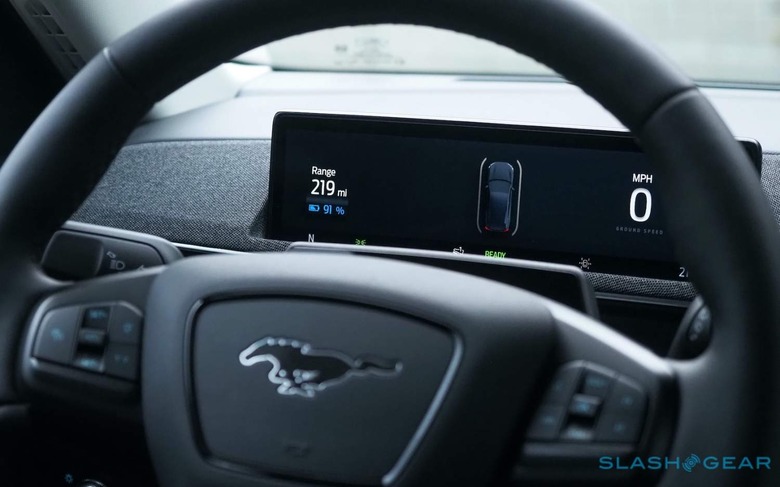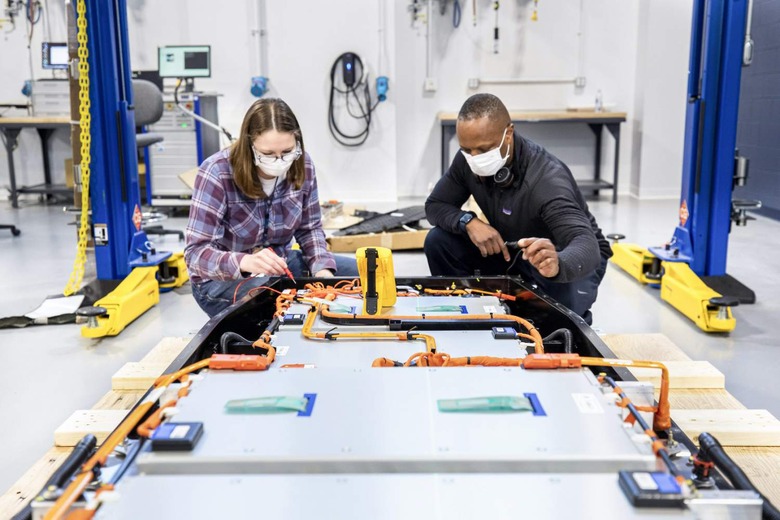Ford Unveils Its Big Battery Lab To Win The EV Wars
Ford is planning a new EV battery hub in Michigan, with Ford Ion Park tasked with figuring out longer ranges and cheaper costs as the automaker pushes its electric vehicle line-up. The "global battery center of excellence" will be a 200,000 square-foot lab and pilot project location in the southeast of the state, Ford says, with the automaker spending $185 million on the new facility.
Ford already has EVs in its line-up, with the Mustang Mach-E all-electric crossover already on sale – and getting hit reviews – while the order books for the high-performance version have just opened. However the automaker's electric ambitions go further than that, and not just in the US. Last week, for example, Ford unveiled a new electric model for the Chinese market, the EVOS.
In the pipeline, meanwhile, will be even bigger consumers of batteries. The all-electric Ford F-150 is due to make its debut next year, pairing the best-selling pickup with a completely EV powertrain. Later this year the all-electric Ford Transit will arrive. An F-150 hybrid is already on sale, and Ford has electric plans for most of its models, including Lincoln luxury vehicles.

It leaves Ford facing the same challenge the rest of the automotive world considers: a bottleneck in battery components, limits around practical power density, and the still-high cost of battery packs themselves. The batteries remain the single most expensive component of an electric vehicle, while range remains a key deciding factor among EV shoppers. Like everyone else, Ford wants to cut cost while boosting just how far you'll be able to drive on a charge.
That'll be the key task for the team at Ford Ion Park. Expected to start with 150 experts in everything from battery technology development, research, and manufacturing, to planning, purchasing, quality, and finance, the goal is faster development and manufacturing. "Ford Ion Park will use state-of-the-art equipment to pilot new manufacturing techniques that will allow Ford to quickly scale breakthrough battery cell designs with novel materials once the company vertically integrates battery cells and batteries," the automaker claims.

It'll include potential improvements at mines for the raw materials needed for batteries, through working with suppliers on improving quality and performance, to recycling old batteries at the end of their usable life. A $185 million "collaborative learning lab" dedicated to design, testing, and building vehicle battery cells and cell arrays is expected to open late in 2022. That's part of a $29 billion investment into EVs and autonomous vehicles through 2025.
Ford veteran Anand Sankaran will be in charge of Ion Park, including how it interacts with the Battery Benchmarking and Test Laboratory in Allen Park, Michigan. Opening its doors late in 2020, that facility has 150 test chambers for new power pack technologies. It can also simulate extreme conditions like outliers of weather and excessive use-cases, to make sure the batteries can hold up to a wide range of applications in the wild.
